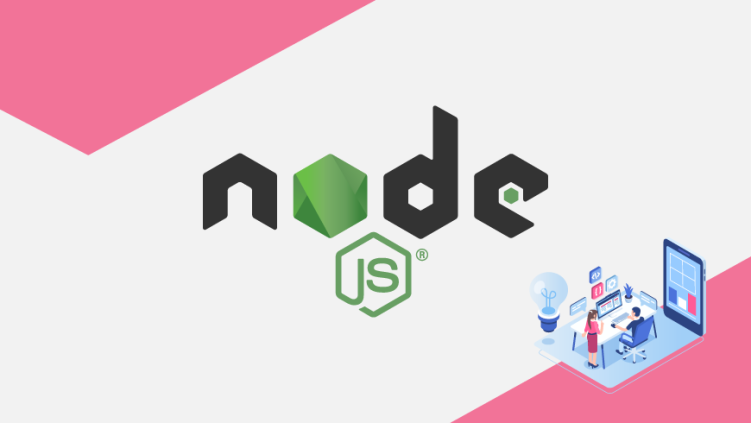The growing Internet of Things (IoT) industry is changing how businesses operate, creating new opportunities for innovation and efficiency.
By connecting physical objects with the internet, businesses can automate processes, create more efficient supply chains, and leverage data to increase customer engagement.
According to research by Markets and Markets, the market size of IoT devices will grow to more than $650 by 2026. If you are interested in exploiting this burgeoning market by focusing on IoT development projects, you should choose Node.js to execute your plans.
Node.js is a robust JavaScript runtime environment that provides immense flexibility and capabilities to develop any IoT project.
It enables developers to develop IoT applications that are both feature-rich and reliable quickly. Node.js is also popular due to its open-source nature and ability to support many languages and platforms.
This blog post will explore why Node.js is well-suited for IoT development projects and the potential drawbacks. We will also discuss whether Node.js is the right choice for your project and provide helpful tips to guide your decision-making process.
Advantages of using Node.js for IoT development
Node.js has become an increasingly popular choice for IoT development due to its scalability and performance.
It is well suited for configuring, deploying, and maintaining IoT systems, enabling developers to quickly and easily build distributed networks of connected devices.
This JavaScript runtime environment offers several advantages, including its lightweight design, speedy execution, and broad access to libraries, allowing developers to create more secure and reliable applications.
Furthermore, Node.js is highly extensible, allowing developers to add additional features and functionality. These advantages make it an ideal choice for developing professional-grade IoT applications.
Also Read: Pros and Cons of Python for Web Development
Challenges to overcome
When deciding whether to use Node.js for your IoT development project, it is essential to consider the challenges associated with this technology.
Node.js is a single-threaded environment, and as such, it can be challenging to debug and develop applications that need to run multiple tasks concurrently.
Additionally, this powerful program can be slow in specific tasks like file I/O, which can be a problem for IoT development. Due to the limited resources available, node.js can be challenging to debug on mobile and embedded devices.
The security implications
When it comes to security, Node.js is an excellent choice for IoT development. This is because it offers developers a wide range of tools and libraries to help them secure their applications.
For example, Node.js’s cryptographic library provides developers with a set of cryptographic functions that can be used to secure data.
Additionally, this popular program includes numerous security-focused packages, such as Helmet and Express-enforcer, which can be used to help prevent common vulnerabilities such as SQL injection and cross-site scripting attacks.
Furthermore, Node.js also supports a secure sockets layer (SSL) and Transport Layer Security (TLS), which are essential for protecting data transmitted over the internet.
The scalability of applications
When it comes to scalability, Node.js is an ideal choice for IoT development. It is based on an event-driven architecture capable of scaling up to support large numbers of devices and large volumes of data.
The lightweight nature and asynchronous I/O of Node.js make it suitable for large-scale distributed application deployment. Additionally, the asynchronous nature of Node.js makes it an ideal choice for real-time communication and data streaming applications.
How to optimize your application for the cloud
When optimizing your application for the cloud, Node.js makes an excellent choice for your IoT development project. It is a lightweight and robust JavaScript runtime environment well-suited for developing cloud-ready applications.
It also provides an extensive library of packages and modules that can be integrated with your existing IoT development project, such as cloud-based storage, message queues, and applications that need to access external data sources.
How to use third-party libraries
Node.js is a popular programming language for IoT development. It provides developers with a wide range of tools and frameworks available for developing effective IoT applications.
One of the most potent aspects of Node.js is its ability to leverage third-party libraries. These libraries are often open-source and can be used to speed up development and add additional features to your application.
When using third-party libraries with Node.js for IoT development, it is crucial to be aware of their license and ensure that your library is compatible with your project.
What tools are available to simplify IoT development with Node.js
Node.js has a comprehensive set of libraries, tools, and frameworks that simplifies the process of building and deploying IoT applications.
In addition, various tools are available that make it easy to integrate Node.js with IoT hardware and software. These tools include web-based device management systems, development frameworks, and libraries of pre-built IoT applications.
These tools can help simplify development and reduce the time to build and launch an IoT application.
Also Read: SaaS Product Development Tools
How to deploy your Node.js applications to the cloud
Node.js applications can easily be deployed to the cloud using Amazon Web Services or Microsoft Azure services.
This makes it easier for developers to scale their applications to meet the demands of the user base without the need for complex server configurations.
With the ability to deploy applications quickly and easily, Node.js is an excellent choice for IoT development projects where scalability needs to be a priority.
What methods can be used to debug Node.js-based IoT applications
Debugging Node.js-based IoT applications is relatively easy, as various tools can help identify source code issues.
A few of these methods include using Node.js debuggers such as Node Inspector, Chrome DevTools, and Visual Studio Code; using Node.js logging libraries such as Winston and Bunyan; and using console.log () for logging messages.
In addition, a Node.js monitoring tool such as pm2 can help identify the underlying issues in Node.js-based IoT applications.
Furthermore, using a platform such as GitHub for source code version control can help identify and track bugs, making it easier to debug applications.
Best practices when using Node.js for IoT development
When considering Node.js for your IoT development project, there are certain best practices you should keep in mind.
You should be careful about using Node.js for large-scale projects, as it is not well-suited for them.
You should also consider using a container-based deployment model for Node.js, as it allows for more effortless scalability and faster deployment.
Microservices architecture can help you scale your project better and keep your code clean and organized. Lastly, the NPM package manager can help you quickly find helpful packages and keep your code up-to-date.
Conclusion
To summarize, Node.js is an excellent choice for your IoT development project. It is essential to consider what the project needs and to weigh the pros and cons of Node.js against other options. Node.js may not be the best choice for every project, but its scalability, flexibility, and powerful libraries make it an excellent choice for many.
When it comes to finding a reliable Node.js development company, it is important to look for a team with extensive experience and expertise in IoT development, as well as a track record of delivering high-quality, scalable and secure solutions. Choosing the right Node.js development company can help you take your IoT project to the next level, by leveraging the latest technologies and best practices to drive innovation and achieve your business goals.
Recommended Reading: What is Developer Empowerment


2 thoughts on “Should You Use Node.js For Your IoT Development Project?”